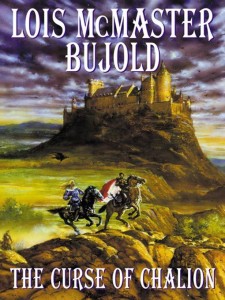http://www.youtube.com/watch?v=tYQCQuiPSlk
Above is a trailer for Crimes and Punishments, Frogwares’s upcoming Sherlock Holmes game, which showcases Holmes’ fabled ability to size up a person in a single glance. I do see the risk that the Sherlock scan will turn out to be an unintuitive guessing game, or a glorified pixel hunt, and from what I recall, the previous Frogwares games received lukewarm reviews. Still, my interest is piqued — the trailer looks pretty cool, and the separate gameplay trailer made me chuckle. The game will come out on September 30, and looks like one to watch.
In book news, I’m slowly going through the superbly readable The Guns of August. Good if you want an introduction to the opening days of World War 1… although I should note that it doesn’t have much to say about why the war broke out. I’ve also recently read a couple of very good specialist books on World War 2, Adam Tooze’s Wages of Destruction and Gerhard Weinberg’s A World at Arms. All three books are candidates for the reading list I’d like to create for this site.
I can also report that the Android version of King of Dragon Pass is mostly good. My play-through was marred by two bugs – one minor, with the interface, and one major, which interfered with my choice of difficulty and game length. As at the time of writing, the game length option has now been fixed, while the difficulty settings are still bugged. The game itself is still very good, and its interface otherwise works well on my Note 8, so I would recommend it once the bugs are gone.
Other than that, I’ve been re-playing, re-reading, and re-watching old favourites. Europa Universalis IV as Ayutthaya – a Southeast Asian nation located in modern Thailand – has been a lot of fun, as I’ve progressed from middle power to the new top dog in Asia. The Wargame: Red Dragon campaign has also been a lot of fun, if sometimes hair-pullingly difficult; managing to stop modern Soviet tanks with 20-year-old relics, a handful of helicopters, and a lot of rocket artillery has been a lesson in improvisation. I’m also re-reading, for the umpteenth time, Lois McMaster Bujold’s The Curse of Chalion – the book I linked to last week. It’s as good as I remember, and for two more days, it’s still pay what you want! And I’m slowly rewatching my favourite anime, Moribito: Guardian of the Spirit – a warm-hearted tale of adventure, loyalty, and parenthood in one of the best fantasy worlds I’ve seen.
This week’s other links:
- IncGamers has a hands-on preview of the Gabriel Knight remake I mentioned last week.
- Here is a brief preview of Cities: Skylines from Strategy Informer.
- General interesting geek news: Bloomberg takes a look at the shortage of power outlets in US airports.
